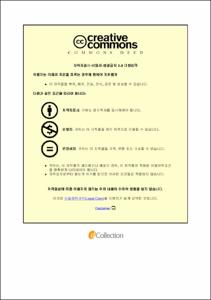읽기를 통한 반복과 입력 강화가 부수적 어휘 습득에 미치는 영향
- Alternative Title
- The effects of repetition and input enhancement of vocabulary learning through reading
- Abstract
- The present study investigated the effects of repetition and input enhancement on incidental vocabulary learning from reading a graded reader. It also examined whether simplified texts such as graded readers are more helpful in acquiring certain aspects of vocabulary knowledge, namely, word-form recognition or meaning recognition. To ascertain whether words of different frequency of occurrence rate were more likely to be learned and retained, 12 target words with three different frequency of occurrence (2, 4, 6) were selected. Each frequency involved four different words, and two words among them appeared in the text at a relatively short distance from each other, while the other two words were a relatively long distance apart. Twelve nonsense words were used in the task to ensure that the subject had no prior knowledge of the target vocabulary.
Four measures of vocabulary knowledge - word-form recognition, word-category selection, meaning recognition and meaning recall tests - were administered to assess the degree of acquisition of vocabulary knowledge. In the experiment, 86 college students were randomly assigned to read either an enhanced or an unenhanced text that contained the target vocabulary. Soon after the task, four types of vocabulary test were conducted and a delayed test took place two weeks later.
The result of the repeated measures of variance analysis showed that word-form recognition learned the most and the meaning recall the least. Both of the immediate and delayed tests revealed a significant positive effect on vocabulary learning. When all the tests were categorized into two groups in accordance with their characteristics of form-recognition and meaning-recognition, the mean scores showed that form-recognition was much higher than meaning recognition. The repeated measures of variance analysis were taken to identify statistical differences. As a result, the simplified text was determined to be better at acquiring word-form recognition than meaning recognition, and it led to a statistical difference.
More repeated encounters generally lead to more vocabulary learning. However, the effects of repetition were not observed consistently in this study. More frequent words were not more likely to be learned except when the meaning recall was statistically significant. Consistency was also not observed in the effects of the repetition interval of the target vocabulary. In order to determine the reason unexpected patterns of acquisition occurred, the correct answer rate of each word was examined. This proved to be over 70% in the word-form recognition, which means participants answered correctly 8 out of 12 questions. In contrast, a correct answer rate of 15% or lower was shown in the meaning recall in both the immediate and delayed tests.
Four repeated exposure words were shown to be more informative contextually in the text. The effects of contextual information rather led to more vocabulary learning in the study. In most vocabulary tests, the retention rate was quite high. More than 90 percent of word-form recognition and meaning recognition remained in the subjects’ memory, and approximately 80 percent were remembered in word-category selection, while only 60 percent of the acquired words were remembered in the meaning recall test.
The mean scores of the input enhancement group were higher in meaning recognition and meaning recall in the immediate test, and higher in all vocabulary knowledge tests, except for word-form recognition, in the delayed test. However, input enhancement had significantly positive effects only on the delayed meaning recall test. The result revealed that input enhancement had a partially positive effect on the meaning recognition, and not on the acquisition of word-form recognition. The implication of the research findings are discussed, and directions for future studies are suggested.
- Issued Date
- 2021
- Awarded Date
- 2021. 2
- Type
- Dissertation
- Publisher
- 부경대학교
- Affiliation
- 부경대학교 대학원
- Department
- 대학원 영어영문학과
- Advisor
- 오준일
- Table Of Contents
- Ⅰ. 서론 1
1.1 연구의 필요성 1
1.2 연구 목적 및 연구 과제 4
1.3 논문의 구성 5
Ⅱ. 이론적 배경과 선행 연구 6
2.1 어휘 지식 6
2.1.1 어휘 지식의 의미와 범위 6
2.1.2 어휘 지식의 크기와 깊이 10
2.1.3 어휘 지식의 발달 16
2.1.4 어휘 학습 방법 19
2.1.4.1 명시적 학습과 묵시적 학습 19
2.1.4.2 의도적 학습과 부수적 학습 22
2.2 읽기와 반복 노출 25
2.3 시각적 입력 강화 31
2.3.1 주목 이론과 입력 강화 31
2.3.2 입력 강화가 습득에 미치는 영향에 관한 선행 연구 34
Ⅲ. 예비 연구 40
3.1 연구 과제 40
3.2 연구 참여자 40
3.3 연구 도구 41
3.3.1 읽기 자료와 목표 어휘 선정 41
3.3.2 어휘 시험지 43
3.4 자료 수집 및 분석 44
3.5 결과 및 논의 45
3.5.1 노출 빈도가 어휘 지식 습득에 미치는 영향 45
3.5.2 시각적 입력 강화가 어휘 지식 습득에 미치는 영향 50
3.6 예비 연구의 결론 및 제한점 53
Ⅳ. 연구 방법 55
4.1 연구 참여자 55
4.2 연구 도구 56
4.2.1 읽기 자료와 목표 어휘 56
4.2.2 어휘 시험 61
4.3 자료 수집 및 분석 절차 62
Ⅴ. 결과 분석 및 논의 65
5.1 단순화된 지문이 어휘 지식 습득에 미치는 영향 65
5.2 반복 노출이 어휘 지식 습득에 미치는 영향 68
5.3 입력 강화가 어휘 지식 습득에 미치는 영향 78
Ⅵ. 결론 및 제언 87
6.1 연구의 결론 87
6.2 연구의 제한점 90
6.3 교육적 함의와 향후 연구 방향 91
참고 문헌 93
부 록 108
- Degree
- Doctor
- Files in This Item:
-
-
Download
 읽기를 통한 반복과 입력 강화가 부수적 어휘 습득에 미치는 영향.pdf
기타 데이터 / 886.3 kB / Adobe PDF
읽기를 통한 반복과 입력 강화가 부수적 어휘 습득에 미치는 영향.pdf
기타 데이터 / 886.3 kB / Adobe PDF
-
Items in Repository are protected by copyright, with all rights reserved, unless otherwise indicated.